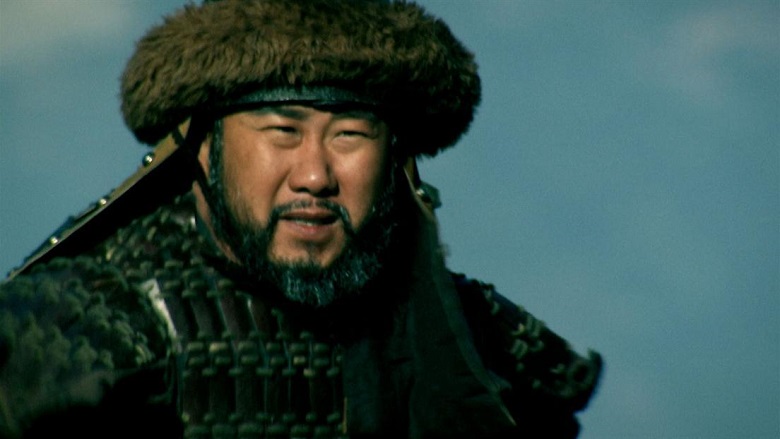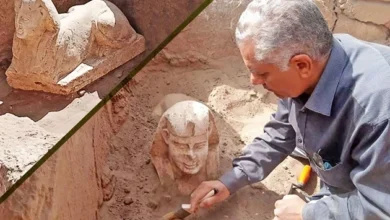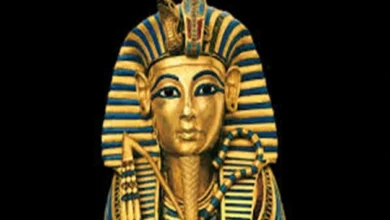Little-known facts about Genghis khan

Genghis Khan’s name is known throughout the world. His Mongol horde conquered half the world. Genghis Khan’s empire stretched from the Caspian Sea to the Pacific Ocean, covering an unimaginable 23 million square kilometers – the largest empire in history.
In 25 years of campaigning, Genghis Khan conquered more land than the entire Roman Empire in 400 years. His warriors were unprecedentedly ferocious, and soldiers of defeated armies suffered an unenviable fate – they were beheaded or forced to swallow molten metal.
Entire cities were destroyed, and prisoners of war were killed or forced to march ahead of the advancing army as human shields. However, although his name is now synonymous with barbarism, Genghis Khan was a leader with several genuinely remarkable qualities.
Modesty
Genghis Khan himself was a relatively modest man. He did not build monuments in honor of his achievements. Even after his death, he wanted to remain humble. Others in his position might have built elaborate memorials to themselves, as the pharaohs did in Egypt. Genghis, however, wished to be buried in a secret place in an unmarked grave.
After his death, a loyal army carried out the leader’s wishes. They drove his body to an unknown destination, killing everyone they met along the way so that these people could not reveal the location of the great Khan’s final resting place.
Genghis’s men dug the grave somewhere in the mountains of Mongolia or perhaps on the vast plains, depending on who they believed. They then trampled the gravesite with horses to camouflage it. It is said that after Genghis Khan’s funeral, the slaves who dug the grave were killed, and the soldiers planted a grove of trees over the burial site.
When the soldiers returned home, they were killed by their comrades to prevent them from discovering the location of Genghis Khan’s remains. Today, archaeologists and treasure hunters are still searching for the grave, hoping to find the final resting place of the great Mongol leader and possibly the treasure hoard rumored to have been buried with him.
Writing in Mongolia
In 1204, Genghis Khan established a writing system in Mongolia known as the Old Uyghur script, which has been in continuous use until today. It was adopted from the Uyghur tribes conquered by the Mongol army. Genghis acted very wisely: when he conquered another tribe, he assimilated their cultural and technological customs, especially if they were superior to his own.
He demonstrated much more wisdom than most conquering nations, which destroyed the dominant culture. Genghis Khan devotes tremendous significance to the ability to write and read. He ordered that all the children of the Mongol Empire be taught to read and that a written code of all the laws of the empire is made.
Meritocracy in the Mongol Empire
Genghis Khan’s empire consisted of a large number of disparate tribes and peoples. Most conquering nations found it difficult to maintain order among the indigenous population and needed many troops to suppress disorder and impose a new way of life.
Genghis chose a different method. He ruled the Mongol Empire as a strict meritocracy. He once stated, “A leader cannot be happy unless his people are happy. All leaders were appointed only based on their ability, and career advancement in the army was based on knowledge and verifiable results.
Even in his own family, he implemented something similar. On his deathbed, he instructed his advisors to appoint his successors (by common consent, they were members of his own family) based only on their ability to succeed.
Restoration of the Silk Road
The Silk Road is the name of the trade route that ran overland through China, India, and Southeast Asia to the lucrative markets of Europe. It was eventually abandoned because of the risk because the vast expanses that traders had to cross were a natural paradise for brigands.
The entire trade route of the Silk Road – a distance of over 7,000 kilometers – fell under Genghis Khan’s rule. The period after the conquest of this area became known as Pax Mongolica (“Mongol Peace”). It was a period of calm and stability that allowed traders to move unhindered along the route.
Trade caravans carried silk and other precious goods such as pearls, precious stones, spices, precious metals, carpets, and medicine. It also ensured that the local economy prospered, and travelers were provided with refreshments along the way. All of this was arranged by the Mongolian powers. The Silk Road became so guarded that it was once even said that “a young maiden laden with gold could go all the way, remaining unpunished.”
A Strict Code of Laws
The Mongol horde is usually thought of as something like an uncontrolled group of ruffians, raping and pillaging at will. Mongol society was generally very orderly and law-abiding. Under Genghis Khan, the code of laws was drawn up, detailing the expected behavior of the empire’s citizens and the punishments for those who broke the laws. Every citizen of the Mongol Empire had to abide by these rules, including Genghis Khan himself. Kidnapping, animal abuse, theft, and, surprisingly, slavery (though only for fellow Mongols) were banned.
Other decrees included raising the minimum age for military service to 20 years. In addition, no one could be considered guilty of a crime unless he was caught at the crime scene or confessed to his own volition. On his deathbed, Genghis Khan said: “If my followers refuse the law, the state will collapse.” These appear to have been something of a prophecy, as his empire completely collapsed within 150 years, and no copies of the law remained.
Attitude towards the army
The welfare of his troops was of particular concern to Genghis Khan. He declared, “I want to feed them succulent meat, let them live in beautiful yurts, and let them graze their cattle on fertile land. If a warrior died because of his commander’s negligence, the commander was punished. And if a wounded warrior was thrown onto the battlefield, his commander was executed on the spot.
All this forced army commanders to resort to any measure to ensure the welfare of the men under their command. The army operated on a system of mutual loyalty, and this allowed it to conquer the world. Soldiers in the Mongol army were not rewarded. Instead, they collect an equal share of the spoils of war. These ensured that all soldiers had a stake in victory. If a soldier died in the war, his share of the spoils was given to his family.
Support for Women’s Rights
At that time, Genghis Khan was a steadfast defender of women’s rights. Women in Mongolia were much freer than their neighbors in China or Persia. They could ride horses, fight battles, tend farms, and participate in politics. Although most women still had fewer rights than men, some women greatly influenced the Mongol Empire. They held government positions and played significant roles in governing the empire. The kidnapping of wives was explicitly forbidden by law (Genghis Khan’s wife was kidnapped), as was the practice of selling women into marriage against their will.
Religious Freedom
Genghis Khan was a shamanist, like most Mongols of the time. Nevertheless, he maintained tolerance for all religions in his empire. He exempted religious leaders of all faiths from paying taxes and encouraged citizens to practice their chosen religions freely. He invited religious leaders to meet with him for interfaith discussions and wanted to hear their beliefs.
Genghis Khan deliberately chose advisors with a wide variety of religious traditions. His empire was so vast that it consisted of followers of many religions, including Muslims, Buddhists, Hindus, Jews, and Christians. They were all allowed to practice their beliefs without interference from the Mongol state.
Perhaps one of Genghis Khan’s most extraordinary achievements was creating an organized postal system throughout his empire. Post stations were set up to deliver official mail, but they were also available for citizens, soldiers, and even foreigners. Postal systems helped the economy, made it easier to transport goods along the Silk Road, and increased the quality and reliability of information exchange. Postal stations were located 24 kilometers apart.
Couriers moved between stations where they were provided with food and shelter. Foreign witness, such as Marco Polo, marveled at the efficiency of the system. By the end of Mongol rule, thousands of post stations with tens of thousands of horses and couriers.
The Great Lover and Fighter
Although Genghis Khan is known for conquests and empire building, his most “lasting” legacy is that of a lover rather than a fighter. Recent DNA research suggests that Genghis Khan was quite the lover. It is evaluated that 16 million people in Central Asia alone are descendants of the Mongol emperor. Genghis Khan is known to have had many wives and to have “courted” many women.
After the Mongol horde took over a city, Genghis was given the most beautiful women to choose from, and he seems to have taken full advantage of this. His sons and grandsons were also very prolific. One of his grandsons had 22 lawful wives, and he added 30 virgins a year to his harem. Although the Mongol Empire is long gone, Genghis Khan seems to have found other ways to conquer the world.




